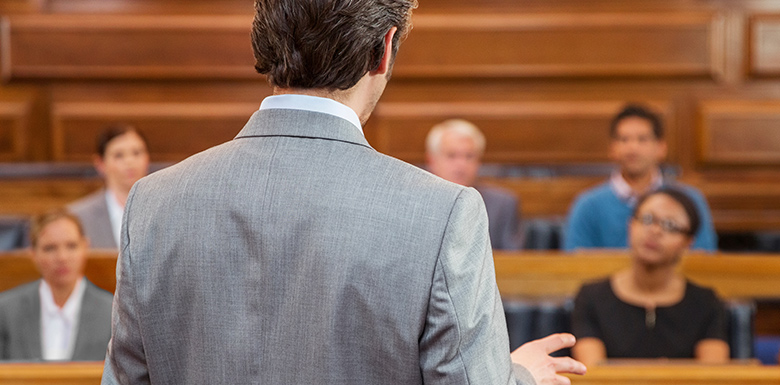
You’ve probably heard about the important role of the grand jury in major news stories or legal dramas. But what exactly is a grand jury, and what do they do in federal cases? You may be surprised to learn that grand juries are one of two types of juries that operate at the federal level, each serving unique functions.
Learn more about the grand jury’s purpose, powers, proceedings, and its role in the federal justice system.
When Is a Case Brought Before a Federal Grand Jury?
The right to grand jury indictment is constitutionally required in federal felony cases. Felonies that can be charged at the federal level include white collar crimes, drug trafficking, fraud, or violent crimes.
Who Serves on a Federal Grand Jury?
A federal grand jury is composed of 16 to 23 jurors drawn from the district where the federal court is held. Jurors typically serve around 18 months, but can serve up to 24 months if a judge grants an extension. As with any jury, the selection process aims to produce a group that represents a fair cross-section of the community.
How Does a Federal Grand Jury Work?
The primary function of a federal grand jury is to investigate potential federal offenses and determine whether there is enough evidence to bring formal charges, known as an indictment, against a suspect. Unlike petit juries, which decide the guilt or innocence of a defendant during a trial, grand juries do not determine guilt. Instead, they decide whether there is probable cause to proceed with a prosecution. Grand juries do not meet every day and will hear multiple cases during their term of service.
Broad Powers
A federal grand jury holds expansive authority due to its constitutional role in the justice system. It can initiate investigations without probable cause or suspicion of a crime based on information from any source, including the grand jurors’ own knowledge. This autonomy allows the grand jury to conduct thorough investigations and operate free of the constraints typically required in criminal investigations.
Secrecy Rules
Grand jury proceedings are secret. The only people allowed in the room are the jurors, the prosecutors presenting the case, the court reporter, and witnesses when they testify. This confidentiality is intended to protect the reputation of the accused if they aren’t indicted, protect the jurors, and encourage witnesses to speak freely.
There are some exceptions to the secrecy rules of a federal grand jury. For example, basic demographic juror information isn’t confidential, and disclosure of some information can be authorized to assist foreign investigations. Courts can also authorize disclosures for national security or public interest reasons.
The accused may have limited access to grand jury materials for their defense. Some transcripts may eventually become public records; however, these exceptions are carefully considered to balance competing interests.
Federal Grand Jury Process
The Administrative Office of the United States Courts provides a Grand Juror Handbook with helpful information outlining what to expect in the grand jury process. Federal grand jury proceedings usually follow these steps:
Evidence Presentation and Witness Questioning
The prosecutor, representing the government, presents evidence and calls witnesses to testify before the grand jury. Jurors are active participants in building the case, not passive receivers of information. The jury can request to hear from additional witnesses and or ask for more evidence.
Grand jury witnesses are usually subpoenaed to appear, and a witness’s attorney cannot be present in the room when they testify. Failing to comply with a subpoena is grounds for holding a witness in contempt.
Deliberation and Voting
After hearing all the evidence, the grand jury deliberates in secret. The prosecutor is barred from these deliberations. This independent deliberation highlights the unique role of the grand jury.
For an indictment to be issued, a majority of jurors must agree there is probable cause. In the federal system, at least 12 jurors must vote in favor of an indictment.
Possible Outcomes
If the grand jury finds sufficient evidence and determines the accused should be put on trial, it issues an indictment against the defendant. The indictment is then sealed until the defendant is arrested or appears voluntarily before the court.
If there’s insufficient evidence, the grand jury can decide not to indict. The prosecutor can still pursue charges through a different process depending on the case. They can resubmit the charges if new evidence emerges.
Facing Federal Charges? Call Harrison & Hart, LLC Today
If you are the target of a federal grand jury investigation or learn you’ve been subpoenaed to testify, it’s crucial to understand your rights and work with an experienced criminal defense attorney.
Even though an attorney cannot be present if you testify, a lawyer can help you prepare for what’s to come and fight to protect your rights. Our legal team at Harrison & Hart, LLC will hear your questions and concerns and provide honest advice and guidance based on our years of practice.
Call (505) 295-3261 or contact us today to schedule an initial consultation.
